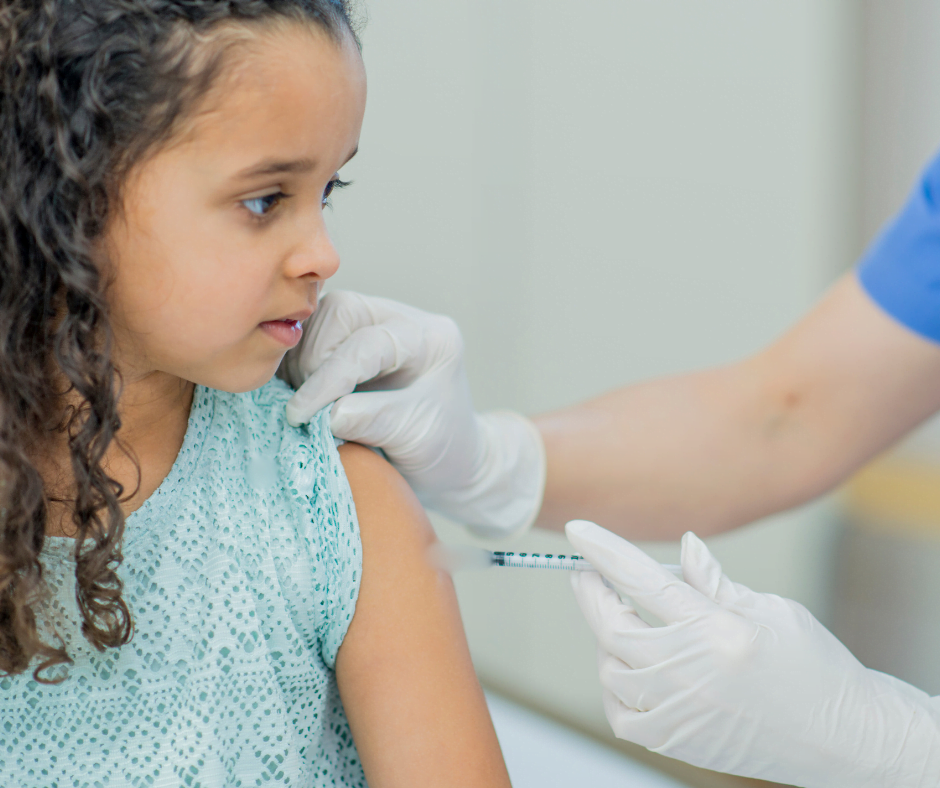Did you know that the fear of needles has more than tripled in the past 30 years?
Needle anxiety is characterised by heightened stress and fear when facing medical procedures involving needles. Unlike needle phobia, which involves an intense, often irrational fear, needle anxiety can affect individuals who may not be outright fearful but still experience significant discomfort and worry. This anxiety can lead to avoidance of essential medical care, such as vaccinations and blood tests, resulting in broader health implications. Fortunately, there are effective needle anxiety solutions that can help manage this condition.
Exploring Needle Anxiety Solutions
What Are The Symptoms For Needle Anxiety?

The stress caused by needle anxiety can manifest in various physical and emotional ways. Common symptoms include sweating, trembling, dizziness, nausea, and an elevated heart rate. In some cases, the mere anticipation of a needle can trigger these symptoms, making the experience distressing even before the procedure begins.
Needle anxiety often results in avoidance behavior, where individuals delay or skip necessary medical treatments such as blood tests to avoid the associated stress. This can have serious implications, particularly for those who require regular injections, such as diabetics, or those needing vaccinations to protect against diseases.
Addressing needle fear and phobia is essential to improve a person’s overall health and well-being and prevent delays in diagnosis and improve early treatment for medical conditions.
Who Experiences Needle Anxiety?
Needle anxiety can affect anyone, though it is particularly common in children, teenagers, and individuals with a history of negative experiences with needles. Children, in particular, may develop anxiety after a painful injection or simply from observing someone else experiencing discomfort. As they grow older, these early experiences can lead to an ongoing aversion to needles.
Teenagers and adults are not immune to needle anxiety either. Adults who had distressing experiences with needles in childhood or those who encounter medical environments infrequently may also experience anxiety. Additionally, individuals with generalised anxiety disorders may be more susceptible to developing needle anxiety.
Why Does Needle Anxiety Happen?
Several factors contribute to needle anxiety. One of the most significant is the fear of pain. The idea of a sharp object penetrating the skin can be unsettling, especially if previous experiences with needles were painful. This fear is often compounded by a lack of control during the procedure, as the individual is required to remain still while someone else administers the injection.
Another contributing factor is the fear of the unknown. Many people feel anxious about needles simply because they are unsure of what to expect, especially if the procedure is new to them. This anxiety can be heightened by negative stories or media portrayals of needle procedures, which can exaggerate the pain or discomfort involved.
For some, needle anxiety is linked to a broader fear of medical environments. The sterile smell of a clinic, the sight of medical equipment, and the sound of medical instruments can all trigger anxiety, even before the needle is introduced. This sensory overload can make the experience more daunting and contribute to the overall stress associated with needles.
Optimising Your Needle Procedures with Effective Solutions
It isn’t easy but it is possible to overcome this condition completely however it often takes a combined approach with healthcare professionals, dedication and education.
The treatment for needle anxiety requires a combination of psychological strategies and practical tools. Cognitive-behavioral therapy (CBT) is an effective method for managing anxiety by helping individuals reframe their thoughts and gradually desensitise themselves to the source of their anxiety. Through controlled exposure and positive reinforcement, CBT can reduce the stress associated with needles over time.
Relaxation techniques such as box breathing, progressive muscle relaxation, and visualisation can also be helpful. These techniques calm the nervous system, making it easier to manage anxiety during medical procedures. Practicing these methods regularly can help build resilience and reduce the impact of anxiety in the long term.
Practical tools, like desensitising adhesive pads, can also play a crucial role in reducing needle anxiety. These pads, such as those offered by NeedleCalm, are designed to distract the area before an injection, minimising the pain and discomfort associated with the procedure.
Knowing that the injection will be less painful can significantly reduce anxiety and make the experience more manageable putting patients back in control.
You can learn more about the science behind NeedleCalm by researching the ‘Gate Control Theory of Pain and different types of receptors in the body called ‘Nociceptors’.
You are not a ‘Big Baby’. Needle phobia is real.
If needle anxiety is preventing you or a loved one from receiving necessary medical care, consider trying NeedleCalm’s desensitising adhesive pads. These pads are specially designed to reduce pain and anxiety during injections, providing a more comfortable and stress-free experience. Read some of the stories from our fear fighters here – Insert Link to Case Studies
This blog post provides general information and should not be considered a substitute for professional medical advice. If you have needle phobia or are experiencing anxiety related to medical procedures, it is recommended to consult with a healthcare professional.
